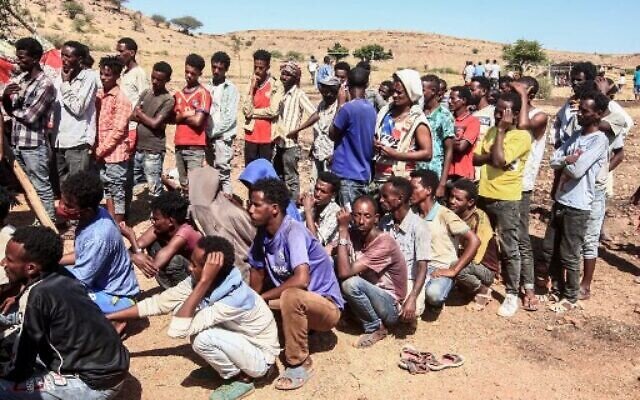Washington Update – by Mesfin Mekonen
April 22, 2024

A summary of significant news reports regarding Ethiopia is presented below. These reports illustrate a nation in turmoil, struggling with famine, and isolating itself from the global community due to corrupt and incompetent governance.
The G7 nations expressed concern in a statement released on April 19 about the Memorandum of Understanding between Ethiopia and the Somaliland region of Somalia, announced in January 2024. The G7 stressed the importance of maintaining open channels of dialogue to prevent further escalation, urging both the Ethiopian and Federal Government of Somalia to collaborate with regional partners, within the African Union framework, and through bilateral contacts, in accordance with international law and the principles of sovereignty and territorial integrity outlined in the UN Charter.
On April 16, the Associated Press reported that a UN-backed event secured pledges of nearly $630 million for Ethiopia’s humanitarian crisis, falling short of the $1 billion target to assist millions of people facing conflict and climate change in Africa’s second most populous country. The AP article highlighted the significant corruption that led the U.S. to suspend humanitarian aid to Ethiopia last year, with donors urging the Ethiopian government to ensure aid delivery without interference, reaching those most in need.
The G7, consisting of seven of the world’s largest advanced economies, including the United States, United Kingdom, Canada, France, Germany, Italy, and Japan, has a critical role to play in addressing this crisis. Here are some potential actions the G7 could take:
The G7’s response to the humanitarian crisis in Ethiopia must be comprehensive, coordinated, and dedicated to upholding human rights, peace, and stability in the region. Collaboration with regional organizations, such as the African Union, as well as other key stakeholders, will be crucial to achieving lasting peace and addressing the humanitarian needs of the Ethiopian people.
